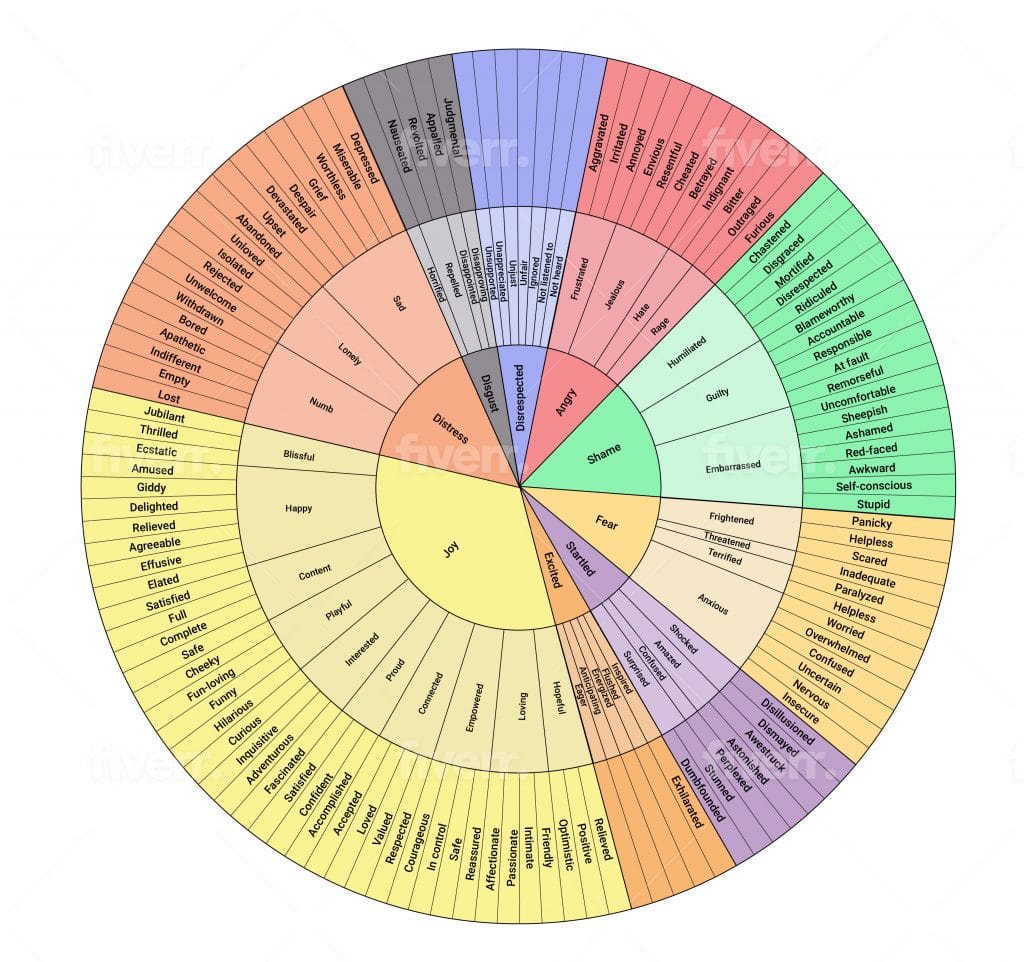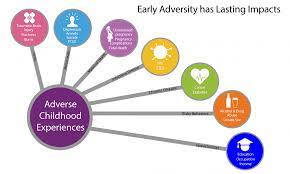We Are Not Born With Emotions
Most people think we are born with emotions. Science tells us that we are not born with emotions. We are born with something call “affect.” Affect is the physiological response to our environment or a memory and generally either pleasant, unpleasant, neutral, or a combination. All of us are born with affect. Since we are not born with emotions, we must learn to create emotions from our affect.
Emotions Are Culturally Created
Imagine affect as a palette of primary colors. There are 9 types of affect and each affect has intensity and valence. Intensity is described as strong arousal, moderate arousal, or weak arousal. What we mean by valence is that an affect is positive (we feel good), neutral ( we are startled or surprised), or negative (we feel anger, disgust, shame, fear, dissmell, or distress).
Strong arousal, anger would indicate rage or hatred.
Weak arousal, anger would indicate irritation or annoyance.
Strong arousal, pleasure would indicate orgasm, awesomeness, transcendance
Weak arousal pleasure would indicate contentment
We learn how to label the thousands of variations and combinations of these 9 affect and that labeling process is called emotional categorization.
Because there are an almost infinite number of combinations of affect, we have to narrow emotions with some rules. The first rules are established by the culture we grow up in. Emotions define culture because they define what is important and what is not important in a cultural group.
While affect remains constant across cultures, emotions vary considerably. Emotions in English do not existence in Finland, Slovakia, or rural Thailand. We create words to describe affective experiences that are relevant to survival in our culture and environment. This is what is meant when we say emotions are culturally created. We are not born with emotions. Instead, the culture we are born into creates emotions for us. 12 Powerful Benefits of Emotional Awareness
Emotions Are Biologically Based
Emotions are biology-based. However, unlike older science that pointed to specific brain centers like the amygdala as the origins of emotions, modern neuroscience informs us that the creation of emotions is widely distributed throughout the brain. Our awareness of emotions is mediated through a brain center called the anterior cingulate gyrus. The ACG takes the information from the neural networks creating emotion and makes it accessible to our conscious awareness.
Emotions Are Experientially Based
Emotions are based on experience, which is another reason we are not born with emotions. We have to experience affect as infants and toddlers, associate the affect with a cognitive construct (annoyance, for example), have the association repeated enough times to learn it. This is a learning process every human goes through starting at birth.
We Construct Emotions Starting At About 18 Months
We construct emotions starting at about 18 months when the emotional circuits start to mature. We continue to construct emotions throughout our lives and, if all goes well, we develop a rich database of emotions associated with various affective states. Emotional granularity refers to your ability to identify and name your emotional experience with specificity. People who have developed emotional granularity tend to score higher on emotional intelligence assessments than those who do not.
Wheel of Emotions From Basic Affect

Why Emotional Invalidation Is So Abusive
Emotional invalidation occurs whenever you are told not to feel the emotions you are experiencing. For example, as a two-year old you undoubtedly fell, scraped your knee, and started crying. What were you told?
“Stop crying.”
“It doesn’t hurt”
“Don’t be a cry baby.”
“Big boys/girls don’t cry.”
“Suck it up buttercup.”
These statements are made unconsciously in a failed attempt to stop a child from experiencing emotion because the emotions are upsetting to adults. What is really going on is that the child’s emotional development is halted. The child experiences emotions (fear, distress, shame, confusion) and is told not to feel that way. Over the two decade process of growing to adulthood, emotional invalidation stunts emotional maturity and causes people to unsafe and awkward with emotions. This is devastatingly brutal and abusive. How to Honor Your Emotions With This 1 Powerful Tool
The Adverse Childhood Experience Study (ACES) shows that this type of childhood abuse has lasting effects, including difficulty with intimate relationships, addiction, and death from cancer, diabetes, CPOD, and host of other fatal diseases. The ACES study shows that these poor adult outcomes are a direct result of emotional abuse.
The Antidote-Listen Others Into Existence
The antidote to emotional invalidation is to learn how to listen others into existence. Although we are not born with emotions, we can learn how honor and master them. And, we can learn how to validate children and adults, instead of causing them pain and hurt. We have developed an online course called Developing Emotional Competency that will teach you how to do this through a series of simple steps you can begin practicing today. Check out the course here.


They are experiencing very basic affect.
The fetus is experiencing the beginning of affect, not emotion.
They are not experiencing emotion. They are experiencing very basic affect.
How do you explain babies crying and laughing in the womb?
So…how do we explain babies laughing and crying in the womb??.
“Itensity is described as strong arousal “ ( missing n in intensity). I love this wheel of emotion from basic affect. Learning how to articulate in words these and “ listen “ to the affect and not the words is a valuable tool towards my own continued development of this skill.